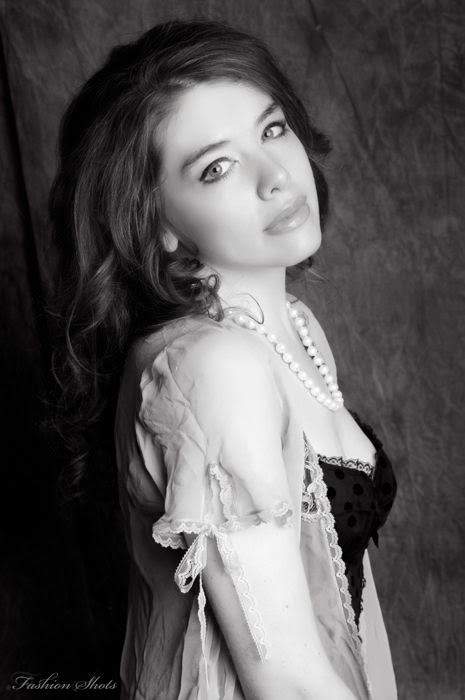
CESARE
A star’s vocation isn’t light
But fine muslin of deepest black,
And caught within the rosewood night:
Fibers of blood and thorns unkempt...
Keep the shadow of his doors unlocked,
Let no light but ashen roam,
Exude from them my fatal night
And make from clay their fetal loam.
So I so shapeless shape his gaze
And will where eyes all willing wants
Escape and thieve the prolific haze,
That breeds in slums and sooty wombs,
The sooty brood of death and want,
Their brilliant dark diurnal haunt.
***
I do not know the way to day,
To see in light maternal slants
On hemlock, rose, the shadow-play
The sun makes on her favorite child…
But go I do on his command
The one who makes blood syrupy,
A knife between my fingers,
My tenderness too monsterly.
I walk through space without his eyes,
Anemones, purple, red, and pink
Black centered stars, my alibis,
For all he asks, I think and do.
But can I love in dusky pinks?
When death creates what beauty thinks?
I had a dream some time ago, where someone I love said "evil is not destructive; evil is creative." And although, when I told this person about the dream, her reaction (that she was told the same thing- in a dream) astounded me. I must say, the truth of it astounds me more.
I've been trying to conceptualize how this could be true, only to realize, it's all transparent. Evil creates states in us, which, by very means of their vocation, recoil from creation unto destroying the very evil that makes them... endemic. If you take, for example, something as horrific as the death of a loved one. The occurrence is undoubtedly evil, but after its initial impact, you create another being that must adapt without that person, in the flesh. A being that, if artistic, will even fall further into an abyss (to rival Charybdis), and, create, or as I oft say, re-create from this experience a reactive spectrum. A spectrum that is the embodiment of life, thus destroying the evil, death, which made it, nurtured it, and brought it to chaotic fruition.
The same could be said for states of mind. It is often the anger, the "evil," the resentment, the "demons," the self deception, that creates the best Art, and, by lieu of that, the greatest personalities. Because, to compensate for pain, many of us are in a life long struggle, the mortal coil, and we create (re-create) a "good," within, that works to be a product of this pain, this evil, yes, but the very force which destroys it, too. So, in this particular incidence, evil is creative and good predominantly destructive, as it obliterates the very evil that "made" it.
There are countless cycles in the history of man that show we have evil proclivities. Fascism. Racism. Etc., And I would by no way justify these occurrences. I am of the belief, however, that the evil they embody works to re-create an "other," an antithesis, if you will, which, in its very means of power, could destroy this very evil. Racists and Fascists and Fundamentalists are hopeless; they think what they are doing is right and good, and this makes their philosophy destructive. People who rebel against these evils, however, have the evil itself as an impetus to foster creativity, to create, not a new ideal, because ideals in their "goodness" are generally destructive, but a more malleable mode of being. A revolution can only exist against antithesis; I'm stating the obvious, it is something we all know.
And this all relates to my above poem. I've had an interesting Thanksgiving weekend. The first one without my father, who passed from cancer/metastatic melanoma/an insidious demon (the cancer), nothing less than Evil. My father was its antithesis. He was wise, humble, kind, and cognizant of things I'm not certain I'll ever learn. On Thanksgiving day, my sister, mother, and I visited his grave, the tombstone of which we hope will be up by Christmas. And standing there, at this spot so scantily marked, with a broken sea shell we had placed there on our previous visit, we cried (of course). We put a new bouquet of flowers down, and it began to ice or hail (I couldn't tell which), but it was frigid. And in all the motions of my mother and sister, my mother's loving words, my sister's loving gesture in giving me her gloves, I felt an infiltration of my father, an immense infiltration. As if he were there, inspiring us with his creativity. And it seemed to me, at home, even after the lovely meal and lovely company we were all in, I couldn't get over how maybe, despite the evil and pain of the experience of loss, we found something, a hotel eternally vacant, within, comforted without by the ceaseless cycle of life and decay, and in this eternal decay, this eternal "evil," beauty. The beauty of who he was, who we are because of him, and what we will become, even without his physical presence.
A similar thing happened to me with my illnesses. When you're diagnosed with something incurable, you enter another world. You leave something behind that will never be had, again. And evil though this may be, evil though I thought it was that my kidneys should be affected, my depression worsened, my demons abounding, thought processes chaotic, "delusions," medications, pain... I knew there was something else at stake. I just read a Baudelaire prose poem where he says the soul is impalpable, something he wouldn't miss, should it go, like a card left carelessly in his pocket (the subject of the poem was a gamble with Satan). I think, when you lose something so endemic to yourself, your healthy self, when a part of you must be let go to decay, it feels like the giving up of a Soul. But in doing this, in confronting this insurmountable evil, you create a Soul that is palpable, that is variegated, and does destroy the evil, which made it, in an illustrious illusion.
Now to the poem. Today, after puking (forgive the horrid imagery, I'm just being honest), I saw a silent film from 1920, for the first time. The Cabinet of Dr. Caligari. And in said film, there's a somnambulist, Cesare, a zombie like man who enacts all of Dr. Caligari's homicidal tendencies. I need to view the film again. This is only after a first viewing, mind you. But I was enchanted by the premise. Of a man who, stifled by morality, "the greater good," even destroyed by it, enacts his evil through a somnambulist. (I won't go through the whole story as that wouldn't be right, to those who haven't seen it). But, the idea of having evil control and create something that enacts all its tendencies, only to have these tendencies result not just in murder, but the creation of murder, suggests to me a greater metaphor at stake. The doctor's morality was what saved and ultimately destroyed him; it was his evil tendencies that created a "monster," if you will, Cesare, whose will wasn't any bit his own, but whose actions created such a fuss, a fatal fuss, that the repercussions of madness and "evil" were generally re-discovered, seems to me the embodiment of us all. The question is, what can and can't we control?
I've set up the poem as two sonnets, two voices, which I hope you'll pick up on. But even if you've never seen the film, this poem should reveal what you already know. Evil encompasses us daily, and it is a far more creative than destructive force. Whether warring against God or human nature, we're always vying against it; and it is always the impulse for all we are and all we seem, like Poe said, a dream within a dream.

